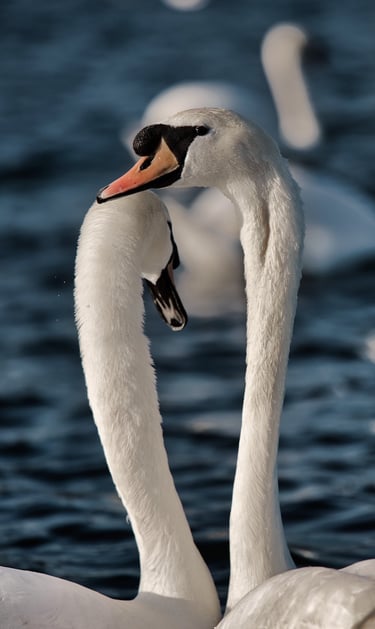When Recovery from an Eating Disorder Feels Like Betrayal
In this article I reflect on the complex guilt many feel when moving on from an eating disorder, likening it to leaving behind a trusted friend.
5/17/20255 min read


When I think about how people describe their eating disorder as a friend, I find it profoundly moving. It reflects the complexity of human resilience and the way our minds try to make sense of pain. It is not uncommon for someone to hold onto their eating disorder, not just because it feels familiar, but because it feels like a lifeline. Letting go can feel like betrayal, and the grief that follows can be immense.
I have often heard patients say that their eating disorder stood by them in moments when no one else did. It became a presence, almost like a person, offering structure, comfort, or a sense of control when life felt unbearably chaotic. But this attachment can make the prospect of recovery terrifying. How do you say goodbye to something that feels like it saved you? How do you step away from what feels like a protector? And when you do, how do you avoid the crushing question, “What was it all for?”
These feelings are valid and deserve to be heard. The fear of letting go and the emptiness that might follow are real. For many, their eating disorder became intertwined with their identity. It shaped the way they saw themselves and the world. But I want to offer a perspective that might help untangle this knot. I am not here to tell you that your feelings are wrong or misguided. Instead, I hope to gently shift the way you see this attachment.
Was the eating disorder really a friend? Or was it a tool that your mind reached for in its desperate attempt to cope? Let me explain. When we are in pain, our instincts work tirelessly to protect us. They seek out anything that might offer relief, even if it comes with its own set of problems. For some, one of that tools is an eating disorder. It becomes a way to survive unbearable emotions, trauma, or a sense of being out of control. But the real friend in this story is not the eating disorder. The real friend is your own instinct to survive.
Your survival instinct, your own sense of self, is the true ally in your story. It was this part of your sense of self that searched for a way to manage the chaos and pain, and in its desperate attempt to protect you, it picked up the flawed tool of the eating disorder. It is the part of you that refused to give up, even when things were at their worst. it is a evidence to its resourcefulness and determination to keep you afloat. It is important to remember that this tool of ED was never the friend. It was simply the method your instinct chose at the time to keep you going. The instinct itself, that deeper part of you, is still with you and always will be. By recognising this, you can start to separate the eating disorder from the true friend within you.
I had a patient once who described their eating disorder as a kind of alarm system. Whenever life became too overwhelming, the eating disorder would flare up. At first, they saw this as proof of its power and necessity. But over time, they realised that the alarm was their mind’s way of saying, “Something is wrong, and I need help.” The eating disorder was not the solution. It was a signal, the role usually played by our emotions, such as fear and anxiety. But people may struggle to recognise the signals sent out by their emotions for various of reasons. And as this patient began to recover, they discovered other ways to hear and respond to that alarm, this time played truly by their emotions. They learned to recognise burnout, set boundaries, and ask for support. They realised that their survival was never about the eating disorder. It was about their own resourcefulness.
This does not mean that the eating disorder was a blessing. Far from it. Eating disorders take an enormous toll on the body and mind. They trap people in cycles of pain and make it harder to see other options. But it does mean that the part of you that fought to survive, the part that turned to the eating disorder in the first place, is still with you. It is still your ally. And it is capable of finding new, healthier ways to cope.
A helpful step in this process is to reflect on moments when your instinct guided you toward coping, growth or healing. Among its toolkits, perhaps it led you to ED, perhaps it nudged you to seek help, even if you were scared. Maybe it encouraged you to confide in someone or take a small step toward something better. These moments are evidence that your instinct has always been working in your favour, even when it felt like the eating disorder was the one helping you through.
I understand how letting go of an eating disorder can feel like abandoning a friend. But what it is truly about is laying down a tool given by a friend that no longer serves you. It is about trusting that your instincts, your resilience, and your sense of self will carry you forward. You are not losing the part of you that kept you alive. That part will always be with you. What you are doing is making space for something new.
And yes, that space can feel empty at first. It can feel like a void, as if something vital has been ripped away. But emptiness is the beginning, not the end. It is the soil where new things can grow, where you can start to build a life that feels whole and meaningful, without the weight of the eating disorder holding you down.
Recovery is not about erasing the past and being crushed with the question “what was it all for”. It is an effort to honour the part of you that fought to survive and giving it new tools to work with, and recognising that your instincts are not your enemy. They are your greatest ally. And they are still with you, ready to help you navigate whatever comes next.
When facing the resistance, it can also help to reframe the signals you once associated with the eating disorder. For instance, if certain behaviours arose during times of stress, consider what your instinct was trying to communicate. Was it asking for rest, connection, or reassurance? By understanding these signals, you can start to meet those needs in ways that align with your values and long-term well-being.
The goal here is not to erase the past or deny the role the eating disorder played in your life. Instead, it is important to reframe that role so that you can build a healthier and more compassionate relationship with yourself. The eating disorder was a tool, but your instinct is the guide. It is the part of you that will continue to protect and support you as you navigate recovery. It is the friend that deserves your trust and care.
By recognising your instinct as the true friend, you can begin to let go of the eating disorder without feeling as though you are losing a part of yourself. You will recognise that you are reclaiming the part of you that made survival possible in the first place. You are shifting your focus from the tool to the hand that wields it, and in doing so, you are empowering yourself to choose different tools, ones that nurture your growth and honour your resilience.
This process takes time. It may feel like a leap of faith to trust your instinct after so many years of relying on the eating disorder. But every step you take in forming a meaningful relationship with your inner self is a step toward freedom. The true friend within you is not just your survival instinct, it is also your capacity for growth, your courage, and your desire to live a life that feels whole and fulfilling.
Recovery is not linear. There will be moments when you doubt yourself, when you feel tempted to return to old patterns. But each step forward is a step towards reclaiming your life. And with each step, you are proving to yourself that you are capable of so much more than survival. You are capable of thriving.
